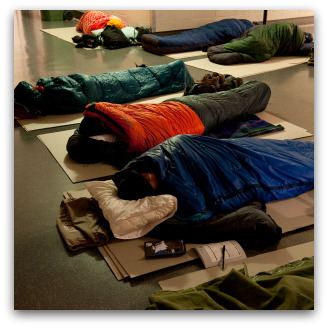Keywords: John Falzon Is Chief Executive Officer Of The St Vincent De Paul Society
-

AUSTRALIA
- John Falzon
- 02 March 2012
7 Comments
The wound of colonisation is not yet healed. The so-called Stronger Futures legislation, which will extend and deepen some of the worst aspects of the NT Intervention, is built on the falsehood that the wound does not exist or is an Aboriginal problem. But it is an Australian problem. It is our problem.
READ MORE 
-

AUSTRALIA
- John Falzon
- 22 December 2011
7 Comments
Democracy has been described as 'the intrusion of the Excluded into the socio-political space'. Children and young people figure prominently among the excluded in our society. When you start to wonder why, you begin to re-evaluate the strength of your democracy.
READ MORE 
-

AUSTRALIA
- John Falzon
- 19 October 2011
8 Comments
Recently I received an email from a young man in Queensland. He was writing to thank the St Vincent de Paul Society for the stance it takes on the side of people who are demonised for being unemployed. He told me his story. Here are some bits of it.
READ MORE 
-

AUSTRALIA
Far from being demonised, people living rough on the streets should be respected and admired for their tenacity and inventiveness. This week a group of business and community leaders will seek to learn from the people who live in the guts of our greatest social problem.
READ MORE 
-

AUSTRALIA
Last week CEOs across Australia 'slept out' to raise awareness and funds for homelessness. The kindness expressed through such charity makes us a richer nation. But charity is no substitute for the justice needed to prevent homelessness.
READ MORE 
-

AUSTRALIA
- John Falzon
- 18 February 2010
22 Comments
Everyone has a story, and they don't happen in limbo. Tony Abbott's comments about homelessness mimic the paternalistic attitude pushed by Margaret Thatcher, where the focus is on supposed individual deficits rather than structural deficits.
READ MORE 
-

AUSTRALIA
- John Falzon
- 15 January 2010
3 Comments
A Japanese homeless man was sending the most exquisite poems to a popular newspaper. There is nothing extraordinary about a person experiencing homelessness producing great poetry. Yet the scenario was regarded with astonishment. October 2009
READ MORE 
-

AUSTRALIA
- John Falzon
- 11 December 2009
7 Comments
Aside from a few fanatical poverty-deniers, there is a broad consensus that we have a serious problem. Frantz Fanon reminded us nearly 50 years ago that we need a redistribution of wealth. 'Humanity must reply to this question, or be shaken to pieces by it.' We have been shaken to pieces.
READ MORE 
-

ARTS AND CULTURE
- Lerys Byrnes | John Falzon
- 13 October 2009
1 Comment
We drink. We dance with openly dark angels, strain our ears and wings to listen
to the wisdom of the broken and the lost. We will discern the sudden
dust we've come from beatifically.
READ MORE 
-

AUSTRALIA
- John Falzon
- 12 October 2009
5 Comments
A Japanese homeless man was sending the most exquisite poems to a popular newspaper. There is nothing extraordinary about a person experiencing homelessness producing great poetry. Yet the scenario was regarded with astonishment.
READ MORE 
-

CONTRIBUTORS
Dr John Falzon is Senior Fellow, Inequality and Social Justice at Per Capita. He is a sociologist, poet and social justice advocate and was national CEO of the St Vincent de Paul Society in Australia from 2006 to 2018. He is a member of the Australian Services Union. He has written and spoken widely on the structural causes of marginalisation and inequality in Australia and has long been an advocate for a fairer and more equitable society. John has worked in academia, in research and advocacy with NGOs, and in community development in large public housing estates. He was a participant in the 2020 Summit, has served on the ACOSS Board as well as on Government advisory committees such as the Communi
READ MORE